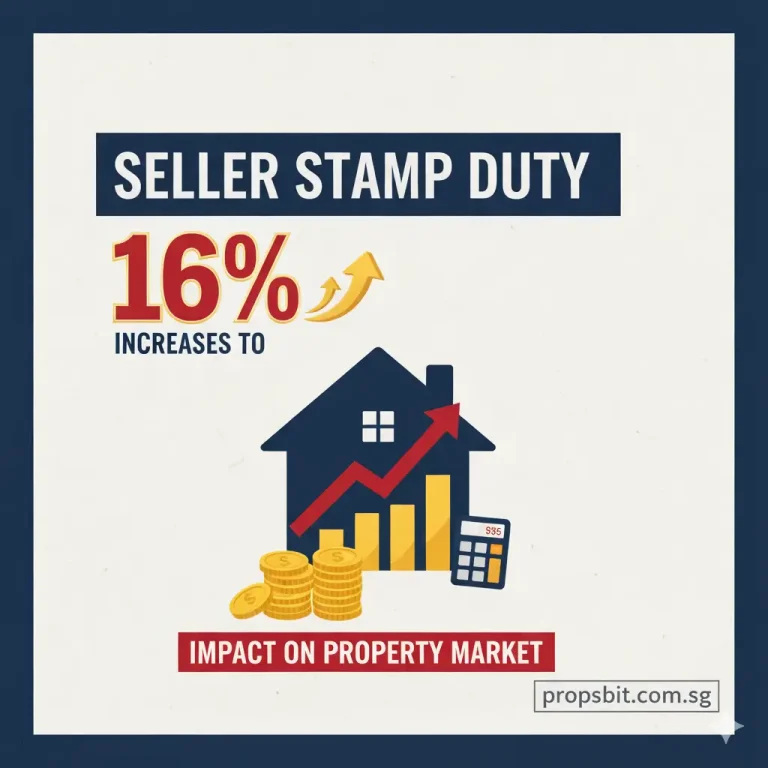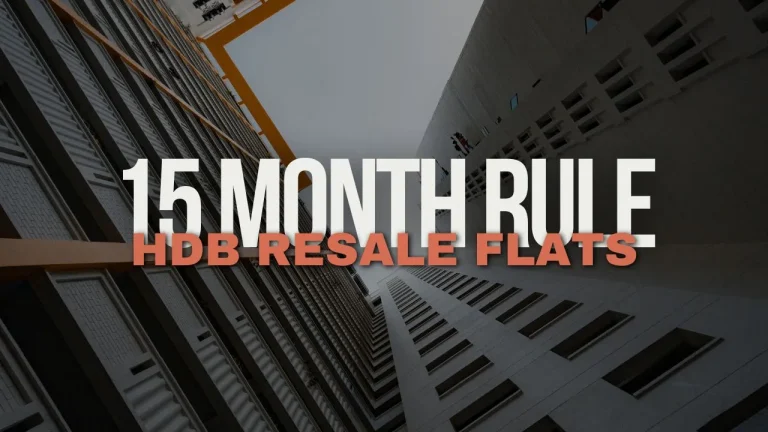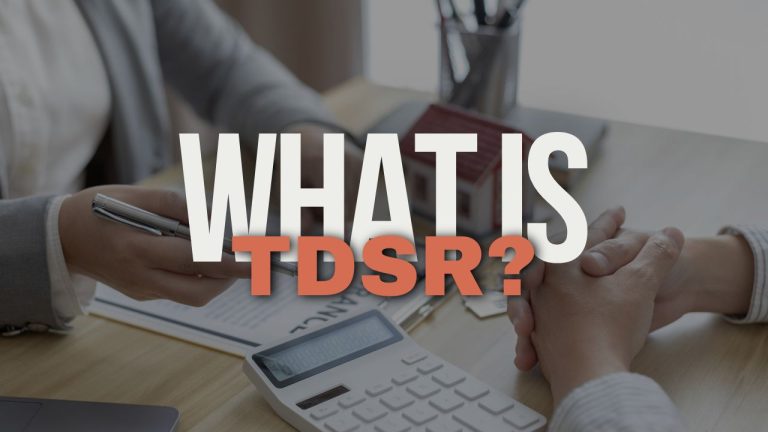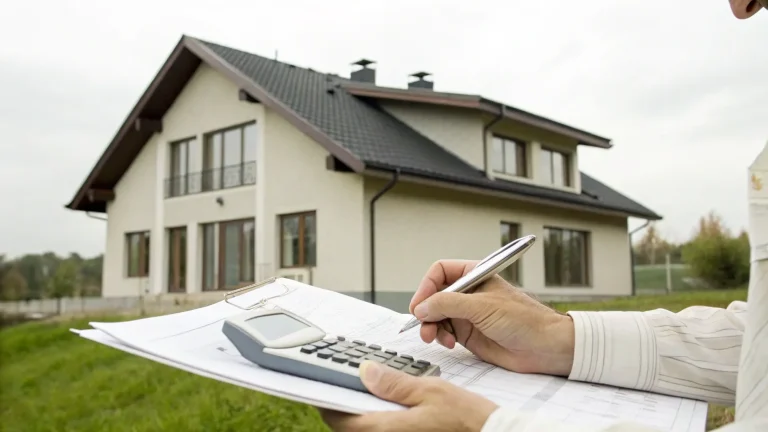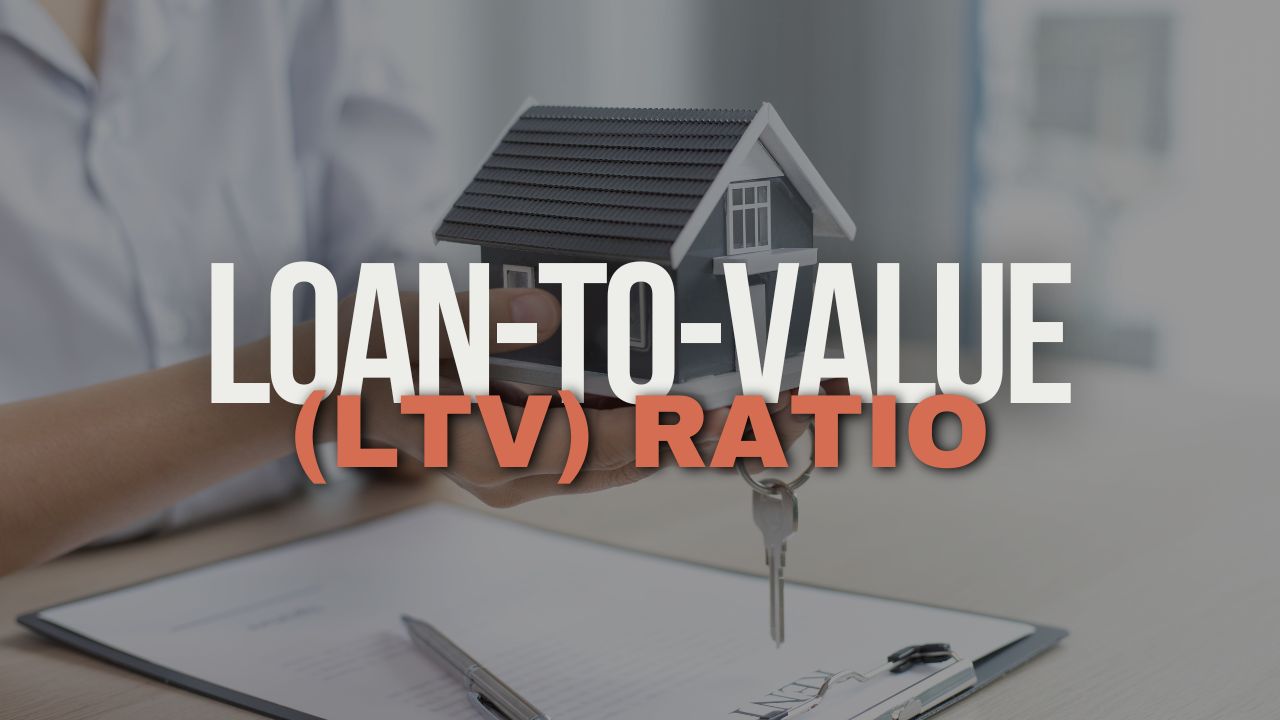
Navigating the property market in Singapore can be overwhelming, especially when it comes to financing your dream home.
The loan-to-value (LTV) ratio is a crucial metric that determines how much you can borrow for a property in Singapore, whether it’s an HDB flat or a private condominium.
This comprehensive guide explains everything you need to know about the LTV ratio, the latest LTV limits, and how these rules affect your ability to buy property in Singapore.
Whether you’re a first-time buyer, upgrading your HDB flat, or considering a bank loan, understanding the Loan-to-Value (LTV) ratio is essential for making informed decisions and securing the best possible deal for your housing loan.

Article Outline of Singapore Loan-to-Value LTV Ratio
What is the Loan-to-Value LTV Ratio in Singapore?
The loan-to-value (LTV) ratio is a financial metric that determines the maximum amount you can borrow to finance your property in Singapore. Expressed as a percentage, the LTV ratio refers to the loan amount as a percentage of your property’s value or purchase price, whichever is lower.
For example, if the LTV ratio is 75%, you can borrow up to 75% of your property’s value, and the remaining 25% must be paid as a down payment 1 2 3 .
Understanding the LTV ratio is essential because it directly affects the affordability of your property purchase and the size of your housing loan. Whether you’re applying for an HDB loan or a bank loan, the LTV ratio will determine how much financing you can obtain for your new home.
Why Does the LTV Ratio Matter for Home Buyers and Investors?
The LTV ratio is a key factor in property financing because it impacts your financial commitment and upfront cash requirements. A higher LTV allows you to borrow more, reducing your initial cash outlay, while a lower LTV means you need a larger down payment 2 3 . For home buyers, especially first-timers, understanding the LTV ratio helps in planning your finances, assessing affordability, and making informed decisions about your property purchase.
For property investors, the LTV ratio is equally important as it determines the leverage you can use for investment properties. The LTV limits set by the Monetary Authority of Singapore (MAS) are designed to ensure responsible lending and maintain market stability 2 .
How is the LTV Ratio Calculated for Property in Singapore?
The LTV ratio is calculated based on the lower of the purchase price or the official valuation of the property. For instance, if you buy a property for S$1,000,000 and the LTV ratio is 75%, the maximum loan amount you can secure is S$750,000. The remaining S$250,000 forms your down payment 2 3 .
If you pay more than the property’s valuation (common in resale transactions with cash over valuation, or COV), the LTV applies to the lower valuation, and you must pay the difference in cash 3. This rule ensures that buyers do not over-leverage on inflated property prices.
What Are the Current LTV Limits for HDB Loans?
As of August 2024, the LTV limit for HDB loans is 75% 3 5 . This means you can borrow up to 75% of your HDB flat’s purchase price or valuation, whichever is lower. The remaining 25% can be paid using your CPF Ordinary Account (OA) savings or cash, with no minimum cash requirement 2 3 .
This LTV limit applies to new BTO flats, resale HDB flats, and other HDB purchases. HDB loans are only available for eligible Singapore Citizens and Permanent Residents, and the LTV ratio is strictly enforced to promote affordability and financial prudence 2 .
What Are the LTV Limits for Bank Loans in Singapore?
For bank loans , the maximum LTV ratio is also 75% for the first housing loan 1 2 3 . However, there are important differences:
- At least 5% of the property’s price must be paid in cash.
- The remaining 20% can be paid using a mix of cash and CPF OA savings 3 .
If you have existing housing loans, the LTV limit drops significantly: 45% for one outstanding loan, and 35% for two or more outstanding loans 1. These stricter limits are designed to curb excessive borrowing and speculative property purchases.
How Does the LTV Limit Differ for HDB vs. Bank Loans?
While both HDB and bank loans have a maximum LTV ratio of 75%, there are key differences:
| Feature | HDB Loan | Bank Loan |
|---|---|---|
| Maximum LTV Ratio | 75% | 75% |
| Minimum Cash Downpayment | None (can use CPF OA entirely) | 5% of purchase price in cash |
| Remaining Downpayment | CPF OA or cash | 20% CPF OA or cash |
| Eligibility | Singapore Citizens, PRs | Citizens, PRs, some foreigners |
| Interest Rate | Citizens, PRs, and some foreigners | Market-based, variable |
| Loan Tenure | Up to 25 years (HDB), 30 years (bank) | Up to 30-35 years |
| Repayment Options | Flexible | Standardized |
HDB loans are generally more flexible for first-time buyers, while bank loans may offer more competitive rates for certain buyers 1 2 3 .
What Factors Affect Your LTV Limit in Singapore?
Several factors can affect your LTV limit when applying for a home loan in Singapore:
- Number of Outstanding Housing Loans: More loans mean a lower LTV limit 1 .
- Loan Tenure : Exceeding 25 years for HDB flats or 30 years for private property results in a lower LTV 4 .
- Borrower’s Age : If the loan tenure extends beyond the borrower’s age of 65, the LTV limit is reduced to 1 .
- Property Type and Lease : Older properties or those with shorter leases may attract a lower LTV 4 .
- Credit Score and Financial Health : Poor credit or high debt levels can lead to a lower LTV 1 .
- Property Condition and Location: Properties in less desirable locations or poor condition may have stricter LTV limits 4.
Understanding these factors is crucial for maximizing your borrowing potential and planning your property purchase in Singapore.
How Does Loan Tenure Influence the LTV Ratio?
Loan tenure -the length of time over which you repay your housing loan-significantly affects the LTV ratio. In Singapore:
- For HDB flats, the maximum loan tenure is 25 years for HDB loans and 30 years for bank loans 4 .
- For private properties, the maximum loan tenure is 35 years 4 .
If your loan tenure exceeds these limits, or if the loan extends past the borrower’s age of 65, the LTV limit is reduced.
This means you must make a larger down payment and can borrow less 1 4 . Keeping your loan tenure within the recommended limits helps you qualify for the maximum LTV.
What is the Impact of Outstanding Housing Loans on LTV?
The number of outstanding housing loans you have is a major determinant of your LTV limit:
- No outstanding loans : Up to 75% LTV 1 3 .
- One outstanding loan : LTV drops to 45% 1 .
- Two or more outstanding loans: LTV drops further to 35% 1 .
This tiered approach encourages prudent borrowing and discourages over-leveraging in the property market. If you plan to upgrade or invest in multiple properties, be aware that each additional loan will reduce your LTV limit.

How Does Property Value and Type Affect the LTV Ratio?
The property’s value and type play a crucial role in determining your LTV ratio. The LTV is always calculated based on the lower of the purchase price or official valuation 2 3 . If you pay above the valuation (cash over valuation), the excess must be paid in cash.
Certain property types, such as older flats with shorter leases or properties bought through shell companies, have stricter LTV limits-sometimes as low as 15% 2. Always check the latest guidelines for your specific property type to avoid surprises during your loan application.
What is the Total Debt Servicing Ratio (TDSR) and How Does it Relate to LTV?
The Total Debt Servicing Ratio (TDSR) is a regulatory framework that limits the proportion of your gross monthly income that can be spent on debt repayments, including your home loan, car loan, and personal loan. In Singapore, the TDSR is capped at 55% 2 .
TDSR works alongside the LTV ratio to ensure you do not overextend yourself financially. Even if you qualify for a high LTV, you must also meet the TDSR requirement to secure your housing loan.
What is the Mortgage Servicing Ratio (MSR) for HDB Flats?
For HDB flats , the Mortgage Servicing Ratio (MSR) limits the portion of your gross monthly income that can be used for mortgage repayments. The MSR is capped at 30% for HDB loans and executive condominiums purchased directly from developers 2 .
MSR is particularly important for buyers of HDB flats, as it can further limit your maximum loan amount, regardless of the LTV ratio.
How Can You Qualify for the Maximum LTV?
To qualify for the maximum LTV on your housing loan in Singapore:
- Ensure you have no outstanding housing loans at the time of application 1 3 .
- Keep your loan tenure within the recommended limits (25 years for HDB, 30 years for private property) 4 .
- Maintain a good credit score and stable income.
- Choose properties with longer remaining leases and in good condition.
- Ensure the loan does not extend beyond your 65th birthday.
Meeting these criteria increases your chances of securing a higher LTV and reduces your upfront cash requirements.
What Happens if You Exceed the LTV Limit?
If you attempt to borrow more than the allowed LTV limit , your loan application will be rejected or you will be asked to reduce your loan amount. You must be prepared to make a larger down payment to cover the shortfall.
Exceeding the LTV limit can also delay your property purchase or force you to reconsider your budget. Always check your eligibility and the current LTV guidelines before committing to a property in Singapore.
Tips for Securing a Higher LTV and Managing Your Home Loan
- Plan your property purchase to coincide with having no outstanding housing loans.
- Keep your loan tenure short to qualify for the maximum LTV.
- Maintain a healthy credit score and manage your debts prudently.
- Choose your property wisely -properties with longer leases and in prime locations are more likely to secure higher LTV ratios.
- Consult a mortgage advisor or use online calculators to estimate your maximum LTV before applying.

Summary: Key Takeaways on Loan-to-Value in Singapore
- The loan-to-value (LTV) ratio determines how much you can borrow for a property in Singapore.
- The maximum LTV limit is 75% for both HDB and bank loans if you have no outstanding housing loans 1 2 3 .
- Down payment requirements differ: HDB loans allow full CPF OA usage, while bank loans require at least 5% cash.
- Loan tenure, outstanding loans, property type, and borrower’s age all affect your LTV limit 1 4 .
- The Total Debt Servicing Ratio (TDSR) and Mortgage Servicing Ratio (MSR) further restrict your borrowing capacity.
- To qualify for the maximum LTV , keep your finances healthy, minimize outstanding loans, and choose properties with strong fundamentals.
- Always check the latest LTV guidelines before applying for a home loan in Singapore.
By understanding the LTV ratio and how it impacts your home loan, you can make smarter decisions, minimise your upfront costs, and achieve your property goals in Singapore with confidence.
Q: What is the loan-to-value ratio and why is it important for Singapore property purchases?
A: The loan-to-value (LTV) ratio is the percentage of a property’s value that a bank or financial institution is willing to finance through a property loan.
In Singapore, the LTV ratio is crucial because it determines how much cash you need upfront when purchasing property in Singapore.
For most residential properties, the maximum LTV ratio is 75%, meaning you can borrow up to 75% of the property value and must pay the remaining 25% through cash or CPF.
Understanding LTV limits helps buyers plan their finances and ensures they can repay the loan comfortably over time.
Q: What are the current LTV limits for HDB loans versus bank loans in Singapore?
A: For HDB loans, the current LTV limit is 80%, allowing buyers to finance up to 80% of the HDB flat in Singapore. The remaining 20% can be paid using CPF or cash.
For bank loans, the maximum LTV ratio is 75% for the first property loan if the loan tenure does not exceed 30 years, and the loan tenure for housing loans doesn’t extend beyond the borrower’s age of 65.
If you’re buying an HDB with a bank loan, the same 75% applies. However, if you have one existing housing loan, the LTV limit drops to 45% for your second property, requiring a much larger down payment.
Q: What factors influence LTV when applying for a property loan in Singapore?
A: Several factors that influence LTV in Singapore include: your credit score (better scores may qualify for higher LTV), your age (older borrowers may face lower LTV ratios), property type and age (newer properties typically get better LTV rates), loan tenure (longer terms may reduce LTV), outstanding loans (existing debt affects your eligibility), and property location and market conditions.
Your income and debt servicing ratio are also critical as they determine your ability to handle loan repayment. Understanding these variables is essential for anyone seeking a complete guide for loan-to-value ratio assessment.
Q: How does loan tenure affect the loan-to-value ratio for Singapore property loans?
A: Loan tenure significantly impacts the LTV ratio in Singapore. If the loan tenure exceeds 30 years for HDB or private properties, or if the loan extends beyond the borrower’s age of 65, the maximum LTV ratio will be reduced by 5%.
For instance, instead of qualifying for the standard 75% LTV, you would only be eligible for 70%. This reduction aims to discourage overly long loan commitments that might create financial strain later in life.
Additionally, a longer loan tenure usually results in a lower monthly payment but higher total interest costs over the life of the loan.
Q: What is the guide for loan-to-value when purchasing a second property in Singapore?
A: When purchasing a second property in Singapore, the LTV limits become significantly more restrictive. If you have one existing housing loan, the LTV limit drops to 45% for your second property loan.
If you have two or more existing housing loans, the LTV limit further decreases to 35%. Additionally, at least 25% of the purchase price must be paid in cash, with the remainder coming from CPF or additional cash.
These stricter limits are part of Singapore’s property cooling measures designed to prevent speculation and encourage financial prudence when buying investment properties.
Q: Is it better to aim for a higher or lower LTV when taking a property loan?
A: Whether to aim for a higher or lower LTV depends on your financial situation. A higher LTV means you can make a smaller down payment, which preserves more cash for other purposes.
However, it also means taking on more debt, paying more interest over time, and potentially facing higher monthly payments.
A lower LTV ratio indicates you’re borrowing less and contributing more upfront, which typically results in lower monthly payments, less total interest paid, and potentially better loan terms.
If you have ample cash reserves, opting for a lower LTV is generally more financially prudent in the long run.
Q: How does the complete guide for loan-to-value ratio differ for private properties versus HDB flats?
A: For private properties, banks offer a maximum LTV ratio of 75% for the first property (assuming no other conditions like extended tenure).
For HDB flats in Singapore, buyers have two options: an HDB loan with an 80% LTV or a bank loan with a 75% LTV. HDB loans have a fixed interest rate (currently 2.6%), while bank loans offer variable rates that might be lower initially but can fluctuate.
Additionally, the minimum cash down payment differs – with HDB loans, the entire 20% down payment can come from CPF, while bank loans require at least 5% in cash regardless of property type. HDB also has income ceiling restrictions that don’t apply to private property bank loans.
Q: How can I improve my chances of getting the maximum LTV for HDB loans or bank financing?
A: To maximize your LTV when applying for HDB or bank loans in Singapore, focus on improving these areas: maintain an excellent credit score by paying bills on time; reduce existing debt to improve your Total Debt Servicing Ratio (TDSR); choose a property that banks consider valuable and low-risk; opt for a loan tenure under 30 years and ending before you turn 65; save for a larger down payment which demonstrates financial capability; provide proof of stable income; and consider a joint application with a creditworthy co-borrower.
For HDB loans specifically, ensure you meet the income ceiling requirements and citizenship criteria to qualify for the 80% LTV offered by HDB.
Q: Can I use a personal loan to cover the down payment if I don’t qualify for the maximum LTV ratio?
A: No, using a personal loan to cover your property down payment is not allowed in Singapore. Financial institutions and the Monetary Authority of Singapore (MAS) prohibit this practice as it circumvents LTV restrictions designed to ensure financial prudence.
If discovered, your mortgage application could be rejected, and you might face penalties. Additionally, combining a personal loan with a mortgage would significantly increase your debt burden and monthly obligations.
Instead, if you can’t meet the down payment requirements, consider options like delaying your purchase to save more, looking at more affordable properties, or exploring family assistance if available.
Q: What are the consequences of refinancing on the loan-to-value ratio for Singapore property owners?
A: When refinancing in Singapore, the LTV limits still apply, but they’re based on the current property valuation rather than the original purchase price.
If your property has appreciated in value, you may potentially borrow more than your outstanding loan amount (subject to the applicable LTV caps).
However, refinancing to a loan with a tenure exceeding 30 years or extending beyond age 65 will result in a 5% reduction in the LTV cap. If you’re refinancing with the same bank, they might offer more flexibility.
Keep in mind that refinancing often incurs legal fees, valuation costs, and potential penalty fees from your existing loan, which should be factored into your decision about whether the new loan to finance your property makes financial sense.
Disclaimer: This information is provided for informational purposes only. PropsBit.com.sg does not endorse or guarantee its relevance or accuracy concerning your situation. While careful efforts have been taken to ensure the content’s correctness and reliability at the time of publication, it should not replace personalised advice from a qualified professional. We highly recommend against relying solely on this information for financial, investment, property, or legal decisions, and we accept no responsibility for choices made based on this content.


